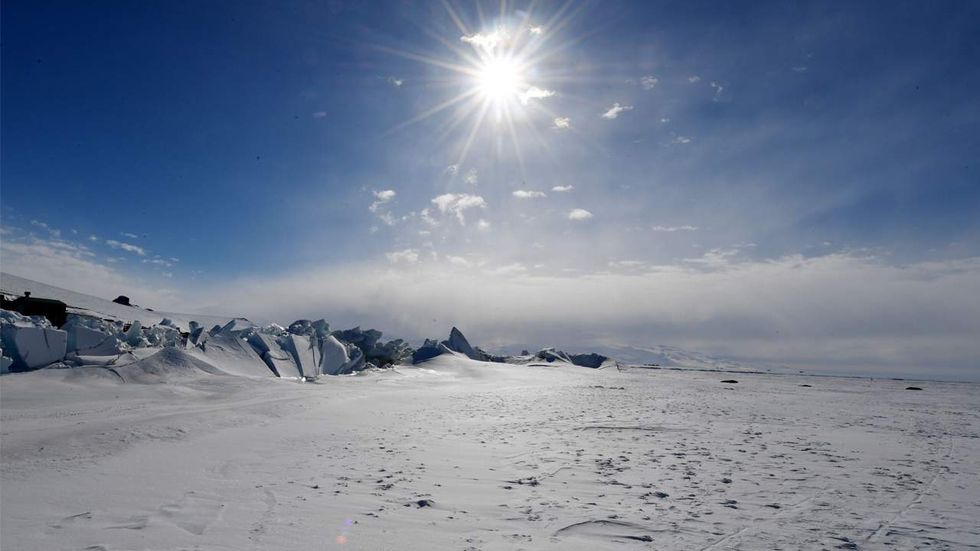
A new study shows Antarctica is in the midst of a cooling period. (MARK RALSTON/AFP/Getty Images)

Warming on the Antarctic Peninsula has long been touted by supporters of the theory man is destroying the planet by using fossil fuels as proof of the dangers of global warming. Al Gore, the face of the world-is-going-to-end climate movement, has visited Antarctica on at least two occasions to highlight the alleged problem.
“This prediction has proven true,” Gore wrote about the claim Antarctica would warm faster than the global average. “Today, the West Antarctic Peninsula is warming about four times faster than the global average.”
Alarmists say the melting of ice sheets in Antarctica will cause massive problems for the rest of the world. For example, left-wing website ThinkProgress wrote in 2012, “Although the vast ice sheets of the frozen continent are remote from almost all of human civilization, their warming has drastic implications for billions of people. With the melting of those almost inconceivable reserves of ice, the planet’s sea levels are rising. Scientists now expect 21st-century sea level rise — on the scale of three to six feet or more — will be dominated by the melting of the Greenland and Antarctic ice caps.”
Climate realists have rightfully pointed out the evidence shows total ice accumulation on Antarctica has outweighed losses, a claim bolstered by a 2015 NASA study, which found, “An increase in Antarctic snow accumulation that began 10,000 years ago is currently adding enough ice to the continent to outweigh the increased losses from its thinning glaciers.” But even many climate change skeptics have accepted some significant parts of Antarctica are warming.
All that is about to change.
A study published in the journal Science of the Total Environment in February is now getting the attention of prominent climate change skeptics. The study claims the Antarctic Peninsula is cooling and that the previous warming in the second half of the 21st century is “an extreme case.” The researchers also found the recent cooling trend, which they say began in 1998-99, has already had a significant impact on the Antarctic Peninsula’s cryosphere, slowing down “glacier recession.”
According to the authors’ abstract:
“The Antarctic Peninsula (AP) is often described as a region with one of the largest warming trends on Earth since the 1950s, based on the temperature trend … recorded at Faraday/Vernadsky station. Accordingly, most works describing the evolution of the natural systems in the AP region cite this extreme trend as the underlying cause of their observed changes. However, a recent analysis (Turner et al., 2016) has shown that the regionally stacked temperature record for the last three decades has shifted from a warming trend of 0.32 °C/decade during 1979–1997 to a cooling trend of − 0.47 °C/decade during 1999–2014. … We show that Faraday/Vernadsky warming trend is an extreme case, circa twice those of the long-term records from other parts of the northern AP. Our results also indicate that the cooling initiated in 1998/1999 has been most significant in the N and NE of the AP and the South Shetland Islands (> 0.5 °C between the two last decades), modest in the Orkney Islands, and absent in the SW of the AP. This recent cooling has already impacted the cryosphere in the northern AP, including slow-down of glacier recession, a shift to surface mass gains of the peripheral glacier and a thinning of the active layer of permafrost in northern AP islands.”
(H/T: Watts Up With That?)
Justin Haskins